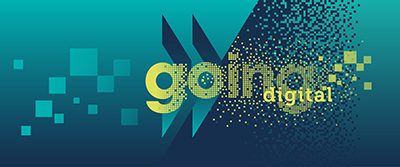The promises of digital transformation
11 Mar 2019 09:00h - 09:45h
Event report
[Read more session reports and live updates from the OECD Going Digital Summit]
The opening session of the OECD Summit on Going Digital featured three keynote speeches about the importance of digital transformation for growth and wellbeing.
Mr Angel Gurria (Secretary-General, OECD) started by expressing his condolences for the lives lost in the Ethiopian Airlines crash. He welcomed the various participants of the event – comprising experts, decision makers, civil society, business, the tech community, academia, and representatives from government. He noted their presence as critical. Digital transformation brings countless opportunities and benefits, as well as multiple challenges, such as privacy and security breaches, growing market power, and aggressive tax avoidance. Gurria raised concerns about inclusion and equality. ‘More than 4 in 10 rural household don’t have access to high speed broadband.’ He also brought up cross-border issues, primarily related to digital trade.
During the 2016 meeting in Cancun, the need for a coherent government approach to digital transformation was recognised. The OECD’s Going Digital Project involved more than 40 different policy committees. Putting people who are strengthened – but not controlled by – digital technologies at the centre. A unique tool for government, the OECD’s digital integrated policy framework was been produced.
Gurria underlined 3 main resources:
- The ‘Going digital, shaping policies, improving life’ report (a strategy for policy making in the digital age)
- ‘Measuring digital transformation – a roadmap for the future’ (the state of the art in digital transformation measurement)
- ‘Going digital toolkit portal’ (aimed at helping countries asses their state of digital development)
Among the seven pillars of the policy framework are: enhancing access, increasing effective use, unleashing innovation, insuring jobs for all, promoting social prosperity, strengthening trust, and fostering market openness.
Mr Peter Pellegrini (Prime Minister, Slovak Republic and Chair of the 2019 OECD Ministerial) said that digital transformation offers a range of opportunities, growth and wellbeing, as well as a number of challenges which need to be addressed. Pellegrini stated that digital technologies have raised hopes for better politics, reminding all that the Arab Spring was encouraged by social media such as Twitter and Facebook, ‘mobilising against regime participatory actions’. Eight years later, some regimes have learned how to use, control, and monitor activists. Some countries are utilising massive amounts of data to, for example, predict the needs of the population, as an alternative to the classical democratic process. ‘Digital dictatorships have become a real alternative.’ Some actors have begun to polarise public opinion by monetising social networks, spreading hoaxes, and hate speech. In the near future, victories ‘may depend on who has better algorithms’. New technologies will continue to affect economies, societies, and political landscapes. He posed three critical questions:
- What kind of world do we want to achieve through digital transformation?
- How do we want artificial intelligence (AI) to influence the way our societies are governed?
- What is the future of policy making in the digital era?
In order to keep societies free and open, it is important to adapt and redefine political aims and define the world we want to live in. ‘We need a new philosophy – digital humanism’, Pellegrini suggested.
Ms Audrey Azoulay (Director-General, UNESCO) reminded that although half of the world’s population will soon be connected to the Internet, it means that the other half is excluded from the digital world. She invited all to fight to bridge this gap. She also noted that there is a gender gap when it comes to using the Internet: 12% less women use the Internet worldwide than men, going as high as 25% in Africa.
Azoulay said that a large portion of jobs will disappear with the digital transformation, which might potentially exclude half of the population. She therefore underlined the need to train and educate citizens.
UNESCO is paying special attention to women in science, and especially women in digital science. In the following period, together with L’Oreal, they will host a women in science award, which aims at changing the image of women in science worldwide.
Azoulay also emphasised the importance of education and digital learning, topics UNESCO is dedicated to. They encourage open and free education and the sharing of knowledge. With 5 million students studying abroad, digital technologies can also help mobility. UNESCO has published guidelines for the development of public policies in education that use open access educational methods. It will be followed by recommendations by the end of 2019.
Moreover, she mentioned that UNESCO is standing for the diversity of thoughts. This, however, also means witnessing hate speech on social media. She invited all to share good practices and standards in order to find regulatory frameworks that are best adapted. ‘We want to use education to fight against terrorism.’
She concluded the session by saying that UNESCO has science and ethics in its DNA and it wants to activate discussion on ethical principles worldwide. ‘International co-operation, multilateralism, will allow us to move forward.’
By Aida Mahmutović
Related topics
Related event

